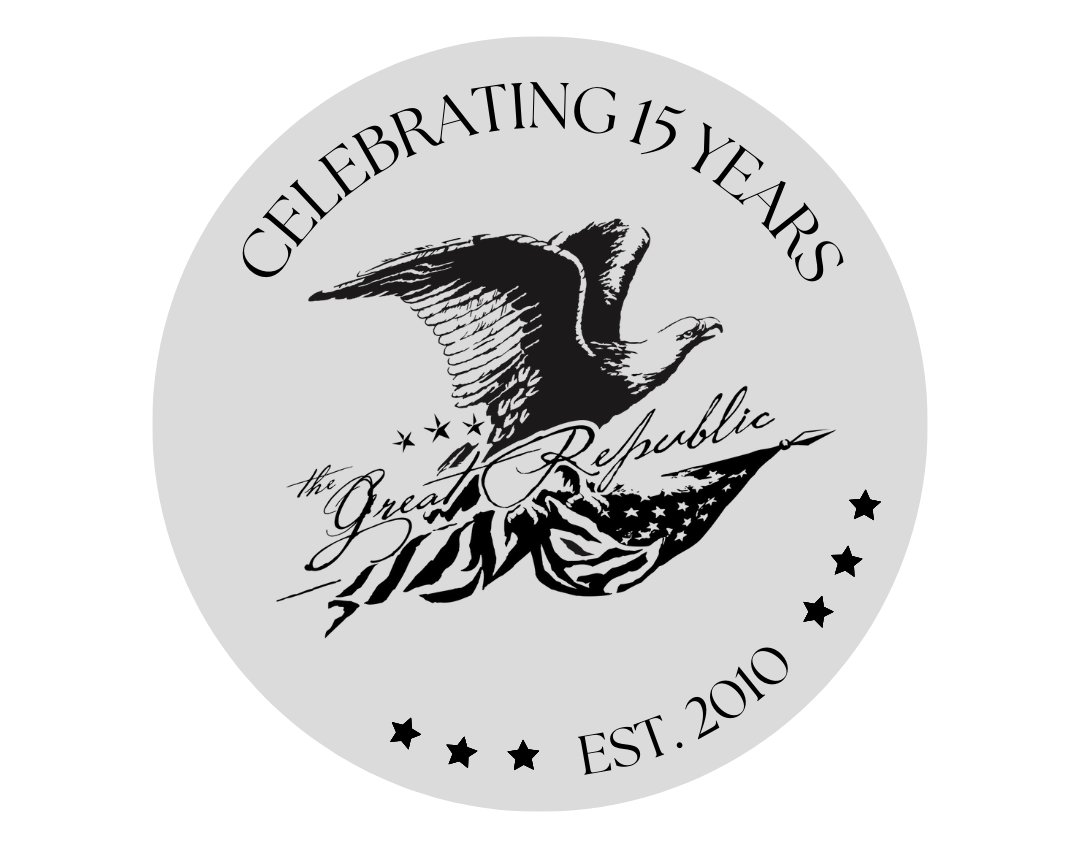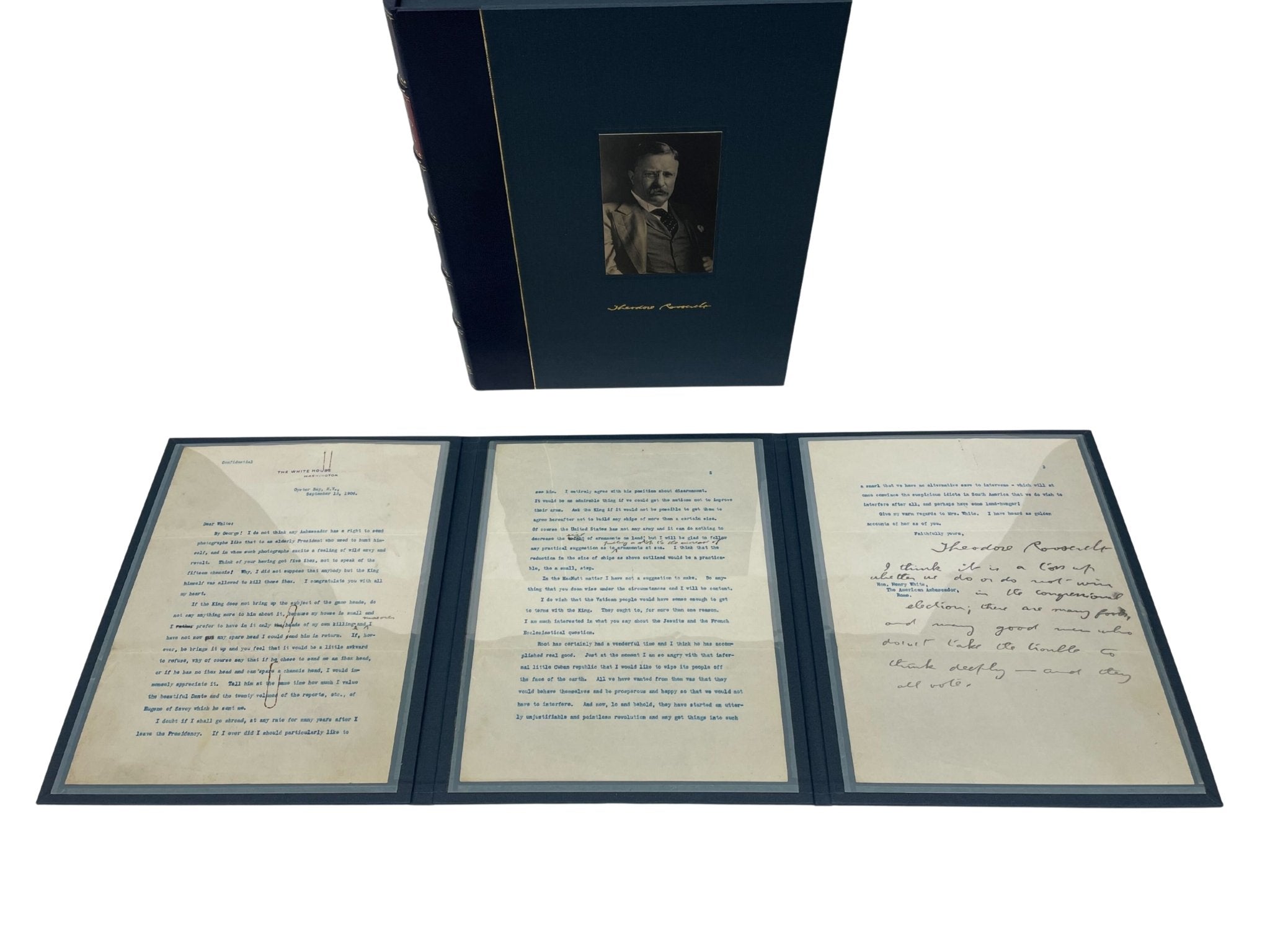
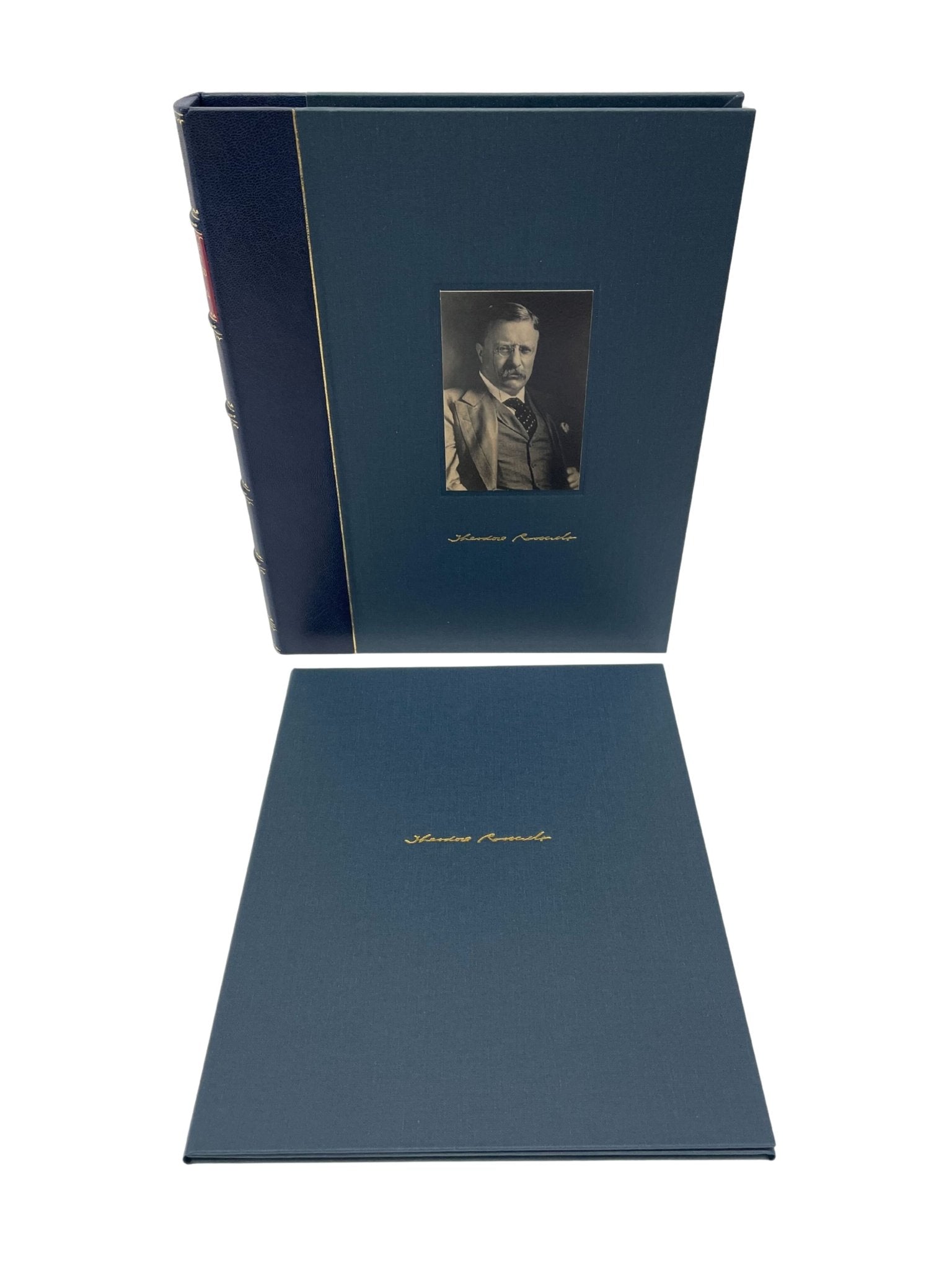
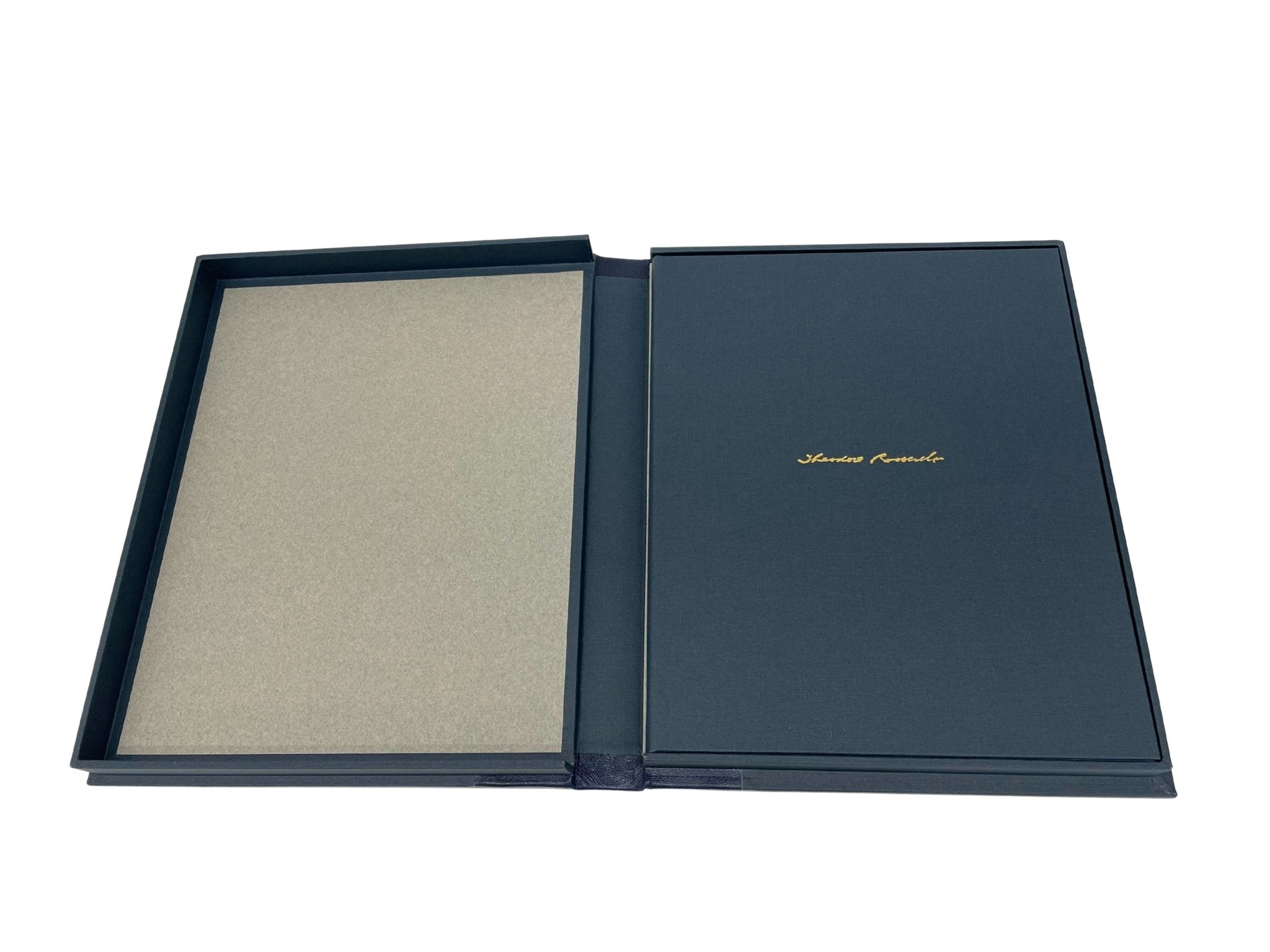
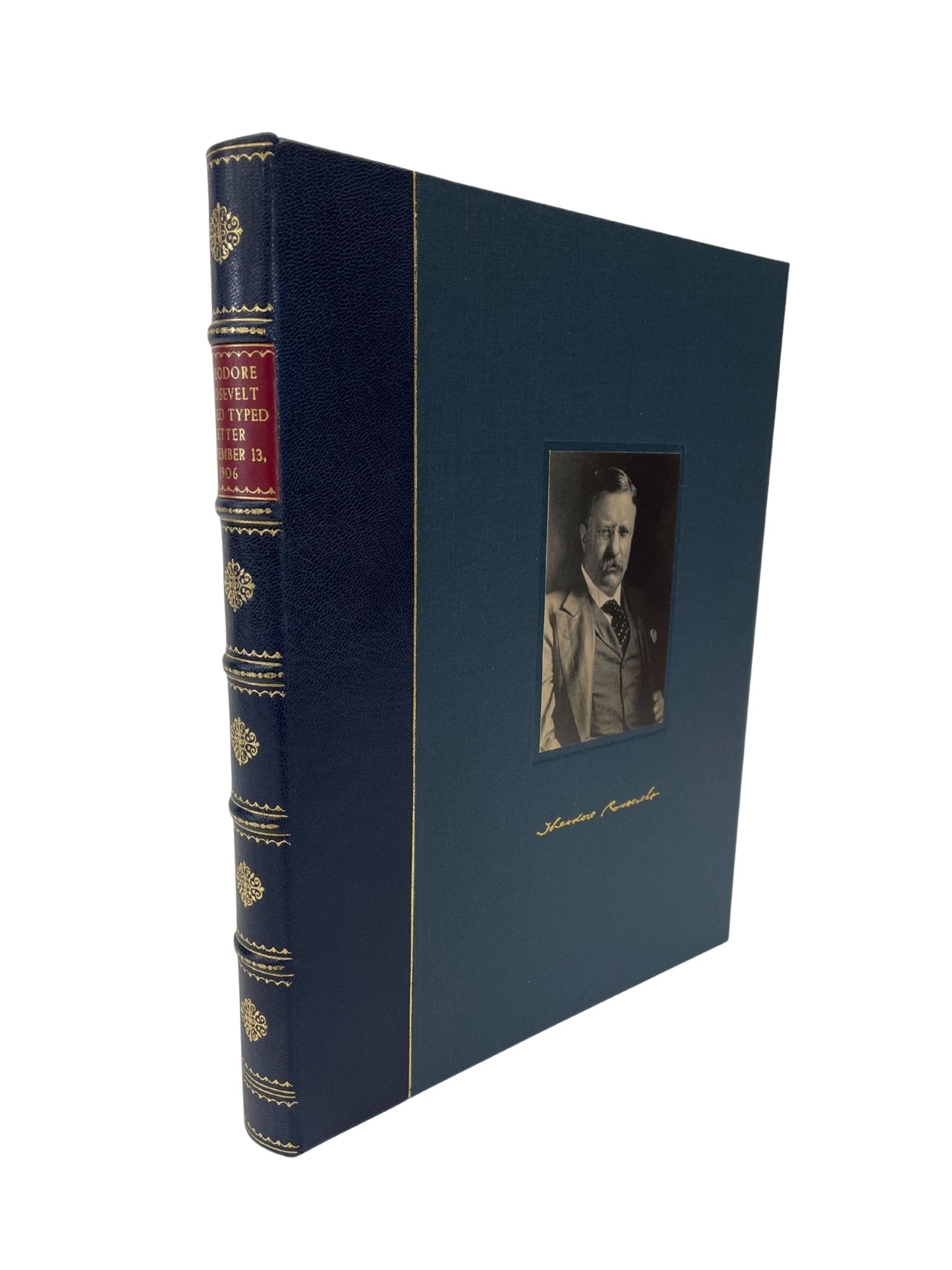
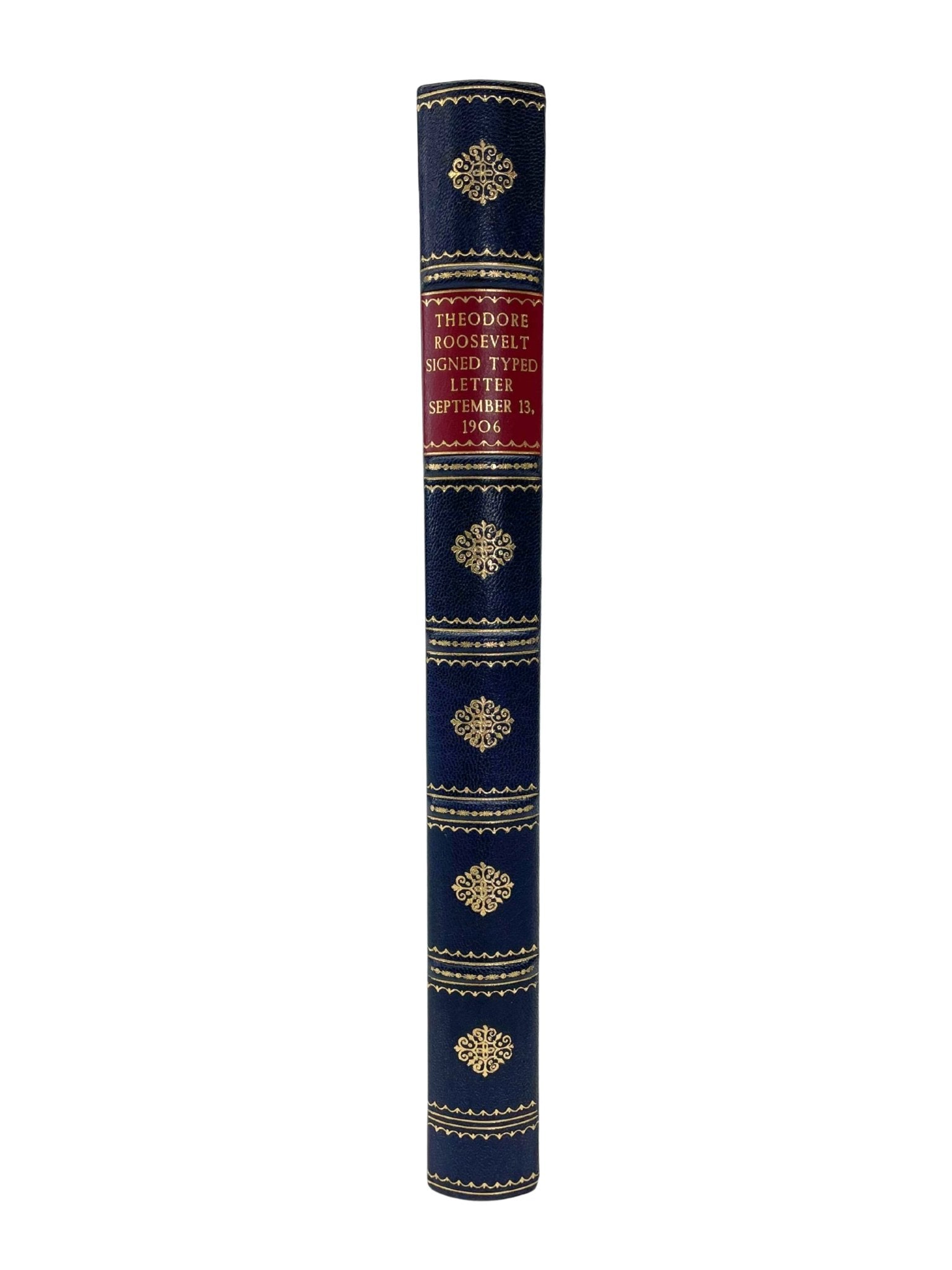
Theodore Roosevelt Signed Typed Letter, to Henry White, Dated September 13, 1906
Presented is an original, three-page Theodore Roosevelt typed and signed presidential letter, with rare autographed postscript, written to Ambassador Henry White. Dated September 13, 1906, the letter is typed on White House letterhead and marked “Confidential.” Roosevelt’s lengthy letter delves into topics of Cuban unrest, European disarmament, Italian politics, the American voter, and the pleasures of big game hunting. This remarkable presidential letter offers a vivid portrait of Theodore Roosevelt in the midst of multiple international concerns, as he writes warmly and candidly to an experienced American diplomat.
Roosevelt begins with characteristic warmth, reacting to Ambassador White’s August 29, 1906 report of a week spent hunting with Italian King Victor Emmanuel III in the Piedmontese Alps. White had sent “little kodak photographs” of the expedition, including one showing him “holding the horns of one of the five ibex that I killed during the week.”(1) Roosevelt answers with friendly indignation at such good circumstances: “By George! I do not think any Ambassador has a right to send photographs like that to an elderly President who used to hunt himself, and in whom such photographs excite a feeling of wild envy and revolt.” He adds, “Why, I did not suppose that anybody but the King himself was allowed to kill those ibex. I congratulate you with all my heart.”Roosevelt then advises that if the King raises the topic of sending him a head, White may accept: “If he chose to send me an ibex head, or if he has no ibex head and spare a chamois head, I would immensely appreciate it.” In the same paragraph, he notes that he prefers to display only trophies from his own game hunts.
The letter then transitions into matters of international importance. In his August 29th letter, White had reported that the Italian King believed an agreement to halt the naval arms race might be achievable. Roosevelt responds approvingly: “I entirely agree with his position about disarmament. It would be an admirable thing if we could get the nations not to improve their arms.” Roosevelt goes further, proposing a specific initiative to cap naval ship building: “Ask the King if it would not be possible to get them to agree hereafter not to build any ships of more than a certain size.” At a time when European powers were expanding both fleets and armies, Roosevelt’s suggestion evinces an early American contribution towards larger global arms control.
Roosevelt then addresses the tense relationship between the Kingdom of Italy and the Vatican, referring to Pope Pius X’s refusal to acknowledge Italian sovereignty over Rome and his adoption of the “prisoner in the Vatican” stance, a papal stance held since 1870. A series of five popes, of whom Pius X was the third, refused to leave the Vatican to avoid the appearance of accepting the authority over Rome of the Italian government, which they considered illegitimate. Roosevelt writes, “I do wish the Vatican people would have sense enough to get to terms with the King. They ought to, for more than one reason.” His comment gestures toward a decades-long deadlock, one that would not be resolved until the Lateran Treaty of 1929.
The letter’s most charged passage concerns the unfolding crisis in Cuba. Since the 1903 Cuban-American Treaty of Relations, the United States had held the authority to intervene in the island’s affairs “for the preservation of Cuban independence, the maintenance of a government adequate for the protection of life, property, and individual liberty, and for discharging the obligations with respect to Cuba imposed by the Treaty of Paris on the United States, now to be assumed and undertaken by the Government of Cuba.”(2). In August and September of 1906, following election fraud, rebellion, and the collapse of President Tomás Estrada Palma’s government, Roosevelt found himself confronted with the very intervention he wished to avoid.
His private frustration erupts in the letter: “Just at the moment I am so angry with that infernal little Cuban republic that I would like to wipe its people off the face of the earth.” He bemoans that “all we have wanted from them was that they would behave themselves and be prosperous and happy so that we would not have to interfere,” but instead “they have started an utterly unjustifiable and pointless revolution and may get things into such a snarl that we have no alternative save to intervene.” Roosevelt fears that such an intervention “will at once convince the suspicious idiots in South America that we do wish to interfere after all, and perhaps have some land-hunger.” Within two weeks of this letter, Roosevelt authorized the dispatch of American forces to Cuba and the creation of the Provisional Government of Cuba, with Secretary of War William H. Taft as Provisional Governor of Cuba.
At the bottom of the letter, after warm closing regards to White and his wife, is Roosevelt signature in black ink, "Theodore Roosevelt,” and an inked postscript containing Roosevelt’s prediction about the upcoming midterm elections: “I think it is a toss up whether we do or do not win in the congressional election; there are many fools, and many good men who do’n’t take the trouble to think deeply and they all vote.” The Republicans gained three seats in the Senate that November, extending their majority to 60 seats. Yet his concern regarding the American voter did foreshadow the Republican loss of 28 seats in the House.
Presidential letters of such breadth, composed during a moment of geopolitical tension and enriched by an autographed postscript addition, are increasingly uncommon on the market. This letter stands out for its combination of international commentary and presidential candor.
CONDITION:
Theodore Roosevelt, Typed Letter Signed, to Henry White, September 13, 1906, Oyster Bay, New York. Autographed Endorsement as Postscript. On “The White House” letterhead. 3 pp., 8" x 10¼" Near fine. Medium blue typewriter ink, with black fountain pen autographed postscript. Expected mailing folds, with light creasing, minor toning and soiling, and a few rusty paper clip impressions and stains. The signature is large, legible, and without fading. Ink is smeared at the end of the words “congressional” and “fools” in postscript.
Presented under mylar in a new, archival cloth chemise and large 1⁄4 leather and cloth clamshell case, gold tooled, with an inlay of Roosevelt and gilt embossed facsimile signature on the front of the clamshell.
Dimensions: Clamshell: 12 5/8"H x 10 3/8" x 1 3/8"D. Chemise: 11 3/8"H x 9 3/8"W x 1/2"D.
Accompanied by our company's letter of authenticity. Excluded from company promotions or sales.
REFERENCES:
1) "Henry White to Theodore Roosevelt, August 29, 1906." Theodore Roosevelt Papers, Library of Congress.
2) “Platt Amendment (1903).” National Archives and Records Administration, Archives.gov
Pickup available at Colorado
Usually ready in 4 hours

Theodore Roosevelt Signed Typed Letter, to Henry White, Dated September 13, 1906
Colorado
1 Lake Avenue
Colorado Springs CO 80906
United States
Choose options





Frequently Asked Questions
FAQs
Yes, all of our Antiques are certified authentic. Every antique comes with a signed Letter of Authenticity that details the item’s history, its current condition including any conservation, binding, or framing work, and the item’s provenance. The Letters of Authenticity are priced valuations by our authentication specialists, who assure that items are original and unconditionally guaranteed as genuine for life.
We pack and ship your items from our gallery in Colorado Springs. You may also choose to come pick up your order. Antique items are carefully packed and insured during shipping. The shipping price will be calculated at checkout.
We acquire from a variety of trusted sources all over the world, but mostly through auctions and private collections within the United States. All provenance information will be listed on the Letter of
Authenticity accompanying your purchase.

